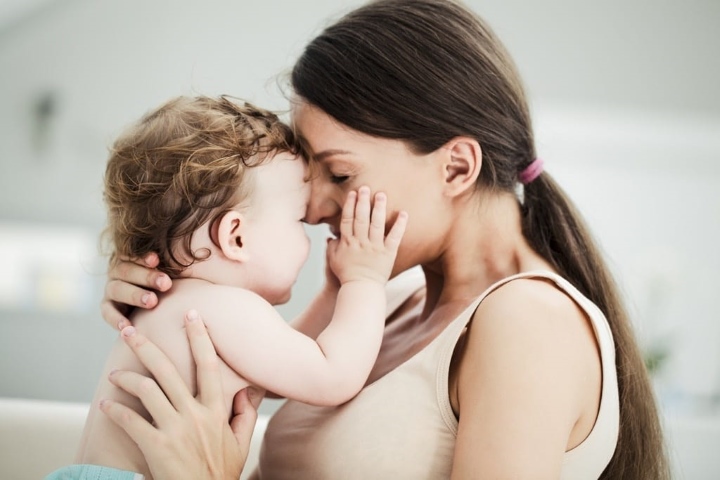Some signs that your baby loves you include makes constant eye contact with you, recognizes you and wants to be with you, babbles and giggles easily with you, crawls towards you, imitates you, wants to be cuddled by you, and more.
You love your baby more than anything else in your life. But did you know that your baby definitely feels the same about you? Even in their early months, your baby learns to recognize you and sees you as a source of warmth, comfort, and safety.
11 Signs Your Baby Loves You
Makes constant eye contact
Within a few weeks, babies can identify their caregiver and they prefer them to other people. They do this by constantly watching and interacting with you, they know your features and expressions. This is why they distinguish between you and all the other people they interact with.
Recognizes you and wants to be with you
Right from birth, a baby can recognize their mother’s face, voice, and scent. Then they link those sounds and smells they trust with something they can see. That’s why they’ll start studying your face as if they’re trying to memorize you. In a way, they are by making sure they know what comfort—and love—looks and feels like.
Easier to calm down with you
It is a common fact that babies are on their best behavior when around other people. It is only when they are alone with you that the worst tantrums and traits blow up. They do this because they know that you love them unconditionally, no matter what they do and they also know that you will calm and comfort them.
Babbles and giggles easily with you
As a baby interacts verbally with you and develops their speaking skills by listening to you and copying your words, it’s just another way of showing just how much they love you. Babies develop communication skills this way by cooing and giggling; it is their version of imitating vowel-like sounds and trying to start a “conversation”.
Crawls and inches towards you
Once the baby begins to crawl, they’ll probably seem to be everywhere at once! But you’ll soon notice how frequently your baby returns to your side or that baby looks to you for reassurance when they’re in an unfamiliar situation. Even before they properly start crawling, they start bouncing with glee and try to get as close to you as humanly possible.
Imitate you
Toddlers imitate the activities and behaviors of the people they love most, so whatever you do they will watch you carefully and try to do the same.
Will say your name first
A baby’s first words are often mama or dada. Besides the fact that they are easy to say, the reason they are among the baby’s first words is that parents are the ones who spend the most time with the infant.
Smiles always when with you
By observing your loving hugs and kisses, over time your baby will learn that these are ways to show affection, and will try to imitate you. Although the hugs may be weak and the kisses wet and open-mouthed, they will clearly indicate the affection your baby has and they are trying to express that for you.
Will come to you when hurt or upset
Your infant already knows you are their primary source of comfort and security, so when upset or hurt they will make a beeline for your arms because nothing will make them feel better than being cuddled by their favorite person. Even if the child is not hurt, any time they’re unconvienced they will come running to you for love, validation, and comfort.
Wants to be cuddled by you all the time
Babies adore being held right from birth, but it takes about six months until they have the physical and cognitive abilities to ask for you to pick them up. It’s a body-language way of saying how much they’ve come to trust and adore their parents and caretakers.
Will freak out when you’re not nearby
Separation anxiety is a sign your child knows that the person they love is different from others and will get upset when you’re not within sight, they will also get super excited and happy when you’ve returned.
Conclusion
There are so many nuances when it comes to infant behavior and each and every child is unique. It is up to you, as the parent, to figure out how to comfort your baby and to figure out their needs, behavioral cues, and ways of communication. It will take trial and error but develops an unbreakable bond and helps with your child’s development.
References:
https://www.parents.com/baby/development/behavioral/signs-your-baby-loves-you/
https://parenting.firstcry.com/articles/10-definite-signs-that-prove-your-baby-loves-you-back/
https://www.thebump.com/a/10-signs-your-baby-likes-you
